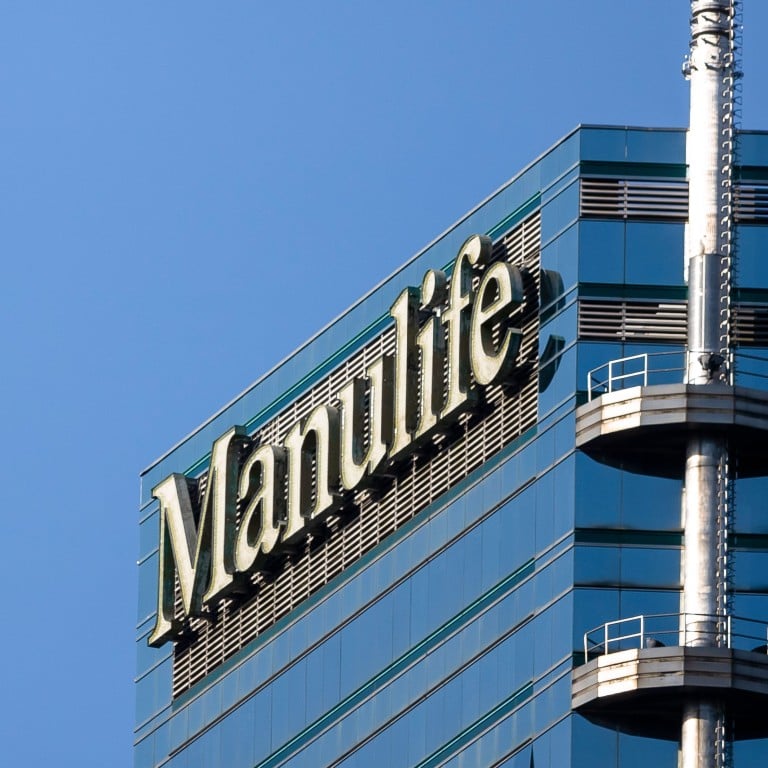
Manulife gets green light to take full control of China funds unit as Beijing tears down foreign ownership barriers
- Analysts said Beijing’s approval of the deal reflects the country’s increased willingness to open up its financial markets to foreign players
- A string of global asset managers including JPMorgan and BlackRock have applied to set up fully-owned mutual fund units in China after regulators scrapped foreign ownership restrictions in April 2020
The China Securities Regulatory Commission (CSRC) gave its approval for the Canadian asset manager to spend 1.7 billion yuan (US$237.22 million) to acquire the 51 per cent of the shares in Manulife TEDA Fund Management owned by its joint venture partner Tianjin TEDA International Holding.
Manulife claims it is the first foreign asset manager to receive government approval to convert its joint venture into a fully-owned fund management company.
It is one of a string of global asset managers including JPMorgan, Fidelity, BlackRock and Neuberger Berman that have applied to set up fully-owned mutual fund units in China after regulators scrapped foreign ownership restrictions in the industry in April 2020.
“This is an important milestone for us, as it means we will have direct access to China’s large and fast-growing retail fund market,” said Michael Dommermuth, head of wealth and asset management in Asia at Manulife Investment Management.
“With the regulatory approval, we are excited by the growth prospects, and our talented domestic teams [are ready] to realise our ambitions.”
Dommermuth said in a telephone interview that Manulife would focus on pension products in mainland China to help the country address the retirement needs of its ageing population.
Manulife needed a 17-month turnaround time to get regulatory approval for full ownership, according to fund consultancy Z-Ben Advisors.
“Above all, this should reaffirm that the regulator is working through applications,” the consultancy said in a report released after the Manulife deal announcement on Monday. “Other foreign entrants may soon see updates to their status.”
The Z-Ben Advisors report also said Manulife is the first foreign fund house to complete a buyout of its domestic partner, while JPMorgan was the first to lodge its bid for full over two years ago, with formal clearance still outstanding.
JPMorgan would need to pay US$1 billion to buy a 49 per cent stake in China International Fund Management to get full ownership of its Chinese mutual fund venture, according to a Reuters report in October.
“We reached a commercial agreement with our joint-venture partner to acquire 100 per cent of our China joint venture in 2020,” said a JPMorgan Asset Management spokeswoman. “We have been working closely with regulators and our joint-venture partner to get regulatory approval of the acquisition.”
There are around 80,000 ultra-high-net-worth families – defined as having more than US$30 million in investible assets – in China, of which more than 20 per cent live in the Greater Bay Area, according to the Hong Kong government.
“It indicates more foreign enterprises will enter into the industry in the future,” Ng said.
“This will speed up the process of the survival of the fittest in the industry, and it will help increase healthy competition for further development of the industry.
“For mainland investors, they will have more choices. Also, because of the increased competition in the industry, the cost for investors to participate in fund transactions may also decrease in the future, and investors will benefit from this.”
Besides the asset management company, the Canadian giant set up the first foreign insurance joint venture in China, Manulife-Sinochem, in 1996. It now has about 15,000 agents operating in more than 50 cities, serving 2.6 million customers in the country.
Manulife-TEDA had assets under management of US$12 billion, as of the end of June.
The CSRC earlier this month approved the appointment of Xu Jin as chairwoman of Manulife’s wealth management business in mainland China.
“By leveraging our strengths in China and our global investment excellence, everyone at Manulife-TEDA remains focused and committed in fostering the advancement of the country’s asset management industry,” Jin said.
She said the company will aim to enhance its pension offerings, and expand its business with all partners in the mainland.


